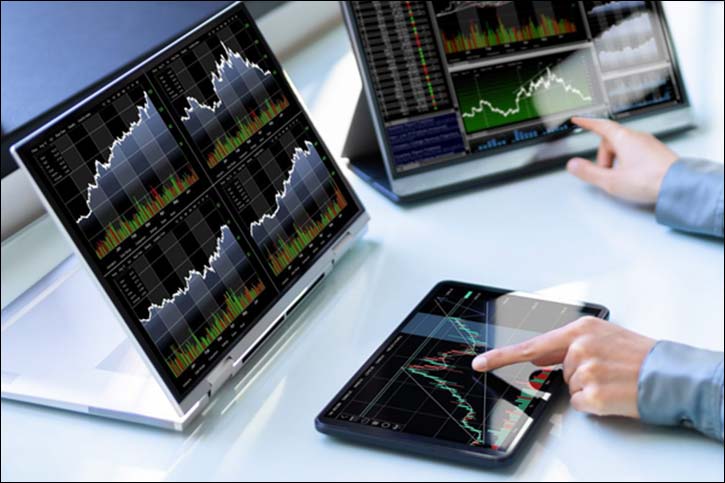
The world of professional trading is fast-paced and highly competitive, demanding tools and technologies that can provide traders with an edge. Advanced trading software is essential for managing portfolios, executing trades, and analyzing market data in real-time. This article explores the various types of software available for professional traders, highlighting their features, benefits, and the latest trends in the industry.
The Importance of Advanced Trading Software
For professional traders, having access to advanced trading software is crucial. These tools help streamline trading operations, reduce errors, and enhance decision-making processes. Here are some key reasons why advanced software is indispensable for traders:
- Real-Time Market Data: Access to real-time data is essential for making informed trading decisions. Advanced software provides live market updates, price quotes, and news feeds, enabling traders to react swiftly to market movements.
- Automated Trading: Automation allows traders to execute orders based on predefined criteria without manual intervention. This reduces the risk of human error and allows for more efficient trading strategies.
- Comprehensive Analysis: Sophisticated software offers robust analytical tools, including technical indicators, charting capabilities, and backtesting options. These features help traders analyze historical data and predict future market trends.
- Risk Management: Effective risk management is crucial in trading. Advanced software includes risk management tools that help traders set stop-loss orders, monitor exposure, and manage their portfolios efficiently.
Types of Trading Software
Professional traders utilize a variety of software tools, each designed to meet specific needs. Here are some of the most common types of trading software:
- Trading Platforms: These are comprehensive systems that offer a range of functionalities, including order execution, market data access, and analytical tools. Popular trading platforms include MetaTrader, Thinkorswim, and Interactive Brokers.
- Charting Software: Charting tools are essential for technical analysis. They provide visual representations of market data, helping traders identify trends and patterns. Examples include TradingView and NinjaTrader.
- Automated Trading Systems: These systems, also known as algorithmic trading platforms, allow traders to develop and implement automated trading strategies. They use complex algorithms to execute trades based on market conditions. Examples include AlgoTrader and QuantConnect.
- MAMS: Multi account manager software is designed for traders who manage multiple accounts. It enables efficient management of several trading accounts from a single interface, streamlining operations and improving performance.
Key Features of Advanced Trading Software
When selecting trading software, professional traders look for specific features that can enhance their trading experience. Here are some essential features to consider:
- User-Friendly Interface: A well-designed interface is crucial for efficient trading. Software should be intuitive and easy to navigate, allowing traders to execute orders quickly and access essential information without hassle.
- Customizable Tools: The ability to customize tools and indicators according to individual trading strategies is highly valuable. Traders should be able to tailor the software to meet their specific needs.
- High-Speed Execution: Speed is critical in trading. Advanced software should offer high-speed order execution to ensure that trades are executed promptly and at the desired prices.
- Security Features: Security is paramount in trading software. Robust security measures, such as encryption and two-factor authentication, help protect sensitive information and prevent unauthorized access.
- Integration Capabilities: The ability to integrate with other tools and platforms is beneficial. This includes compatibility with data feeds, brokerage accounts, and third-party applications.
Trends in Trading Software
The trading software industry is continually evolving, with new trends and technologies emerging. Here are some of the latest trends in trading software:
- Artificial Intelligence (AI) and Machine Learning: AI and machine learning are transforming trading software. These technologies can analyze vast amounts of data, identify patterns, and make predictions, enhancing trading strategies and decision-making.
- Blockchain Technology: Blockchain offers increased transparency and security in trading. It can be used for verifying transactions, ensuring data integrity, and reducing the risk of fraud.
- Mobile Trading: With the rise of mobile technology, trading apps have become increasingly popular. These apps allow traders to monitor markets and execute trades on the go, providing greater flexibility and convenience.
- Social Trading: Social trading platforms enable traders to share insights, strategies, and performance metrics. This collaborative approach helps traders learn from each other and improve their trading skills.
NWTN Joins UAE Business Delegation to China
In a significant development, NWTN has joined the UAE business delegation to China. This move underscores the importance of fostering international business relationships and exploring new market opportunities. By participating in such delegations, companies like NWTN can gain insights into global market trends, establish valuable connections, and expand their business horizons.
Choosing the Right Trading Software
Selecting the right trading software is a critical decision for professional traders. Here are some factors to consider when choosing trading software:
- Reputation and Reliability: Opt for software from reputable providers with a proven track record. Reliability is crucial, as any downtime or technical issues can lead to significant financial losses.
- Support and Resources: Good customer support and access to educational resources are essential. Ensure that the software provider offers adequate support, including tutorials, guides, and responsive customer service.
- Cost: Consider the cost of the software, including subscription fees, commissions, and any additional charges. Evaluate whether the features and benefits justify the expense.
- Compatibility: Ensure that the software is compatible with your trading style and the markets you trade. It should support the instruments and strategies you use regularly.
Conclusion
Advanced trading software is indispensable for professional traders, providing the tools and capabilities needed to navigate complex financial markets. From real-time data access to automated trading and comprehensive analysis, the right software can significantly enhance trading performance. As technology continues to evolve, staying updated with the latest trends and advancements is crucial for maintaining a competitive edge in the trading world. By carefully selecting and utilizing advanced trading software, traders can achieve greater efficiency, accuracy, and success in their trading endeavors.
|
